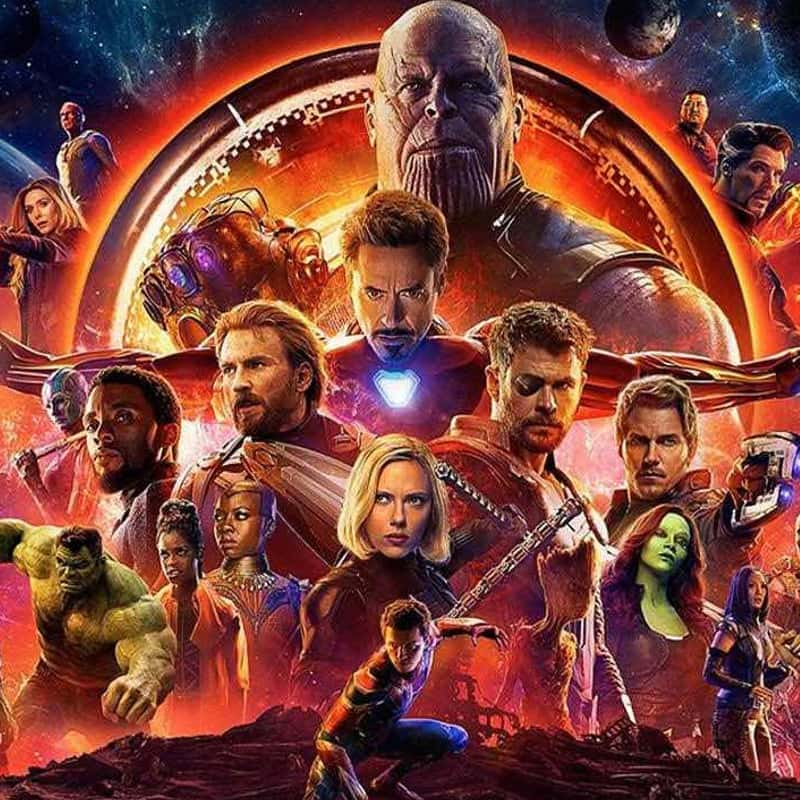It’s not the best movie franchise that ever was, but it’s the most popular at the moment.
And with so many movies coming out in the MCU, Marvel’s Cinematic Universe, one cannot help but wonder: why is the theme of these stories a theme about complicated relationships with fathers?
Is it because these movies are inspired by comic books and the authors wanted the kids to have at least a subliminal connection with their parents?
Or is it because the creators of Marvel, themselves, had problems with crossing an emotional bridge to their own children and this was their way to do it?
If you google it, Marvel was founded in a very delicate period: the late baby boomer era.
This means that these are the kids that had dads from the Silent Generation, the generation that saw a great deal of stress and destruction, in the time of the second World War.
Things get pretty interesting
Now, I don’t know if Marvel - founded in 1939 - inspired George Lucas to write the original Star Wars as a father-son sinuous bond, but with the Marvel Universe, at least the cinematic one, you can see this is a reoccurring theme.
Thor and T’challa have huge respect for their fathers. But they find out that their fathers can make mistakes too. And the pedestals eventually crumble, not without heartbreak, and these godlike father-figures get to answer for their sins.
Quill gets to know his father and what’s a wonderful sensation at first, only turns to ashes in his mouth, later.
Worse:
He may have been your father, boy, but he wasn't your daddy!
Yondu, while saving Peter Quill's ass
Spiderman sees Tony Stark as a surrogate father and even Tony Stark has some well-known history with his own father.
These are just a few examples, not to mention Gamora and her hatred for Thanos.
It seems that Marvel loves to portray these heroic battles as the eternal fight of good versus evil, with minimal twists and turns.
Unless it’s the last Avengers.
Yes, that means spoilers from now on.
So, while Marvel loves to show us how the good guys almost always win, there’s a more subtle theme to its characters
And that theme is “grow up.”
Marvel, an inspiration for Steven Spielberg?
Now, talking about complicated relationships, I don’t know if the creators of the Marvel Universe, Stan Lee included, had complicated relationships with their children, but that’s a solid with the child Steven Spielberg and his dad.
From the now classic E.T: The Extraterrestrial, to Indiana Jones, to Catch Me if You Can, Spielberg has explored the full spectrum of the father-figure trope, while he himself talked about this reoccurring theme, time and again.
Thankfully, Steven Spielberg’s relationship with his father improved with time.
But that’s not the case with Thanos and the rest of the Avengers crew.
- Thor’s father dies at the hands of his sister,
- Tony loses Peter,
- Thanos loses Gamora (even if it’s of his own making)
and so on.
The losses that these characters suffer are meant to help them on their individual character arcs.
They usually start off as bratty and selfish children and along the way they need to learn responsibility and man up, one way or another.
They need to see beyond their selfishness and self-image and make adult-like sacrifices and compromises.
This is especially true with the latest movies in the Marvel Universe:
- Spiderman Homecoming,
- Thor: ragnarok,
- Black Panther
- Avengers: Infinity War part I
The journey of these characters is forced by the various father-figures
Father-figures that inspire their children through both love and hate.
And most inspiring of all is the father that wants to make children from all of us: Thanos.
Marvel’s ultimate villain wants to erase half the universe, because he knows what’s best for his children.
That’s us. All of us.
And I say that because if you take a closer look at Infinity War, you’ll see this theme everywhere. From his closest adopted children, Nebula and Gamora, to his Minions, named “children of Thanos,” to Scarlet Witch, to which he reffers as “my child,” even if they’ve never met before.
This might be Marvel coming full circle with the father-figure theme or it just might be a cheap trick to make us root for this supreme villain.
As we all know, a story is only as strong as its antagonist.
And as long as we empathize or at least find some sense in the antagonist’s reason, we’re all good and prepped up to listen to what the story has to tell us.
So Thanos isn’t your run of the mill bad guy. He’s taking responsibility for all the living, breathing things in the whole universe.
If you will, he’s uncle Ben’s saying, taken to extreme:
With great power, comes great responsibility
Uncle Ben, to the fatherless Peter Parker, aka Spiderman
And Thanos even believes that.
He wants you to worship him, to love him and thank him, because he’s a good dictator god, in search of total dominion over the living.
Thanos wants to be the universal version of Odin: the allfather, THE god, THE king.
And this is where Loki throws a bit of foreshadowing, when he tells Thanos that he’ll never become a god. Yet, by the end of the movie, he does become exactly that. He collects all the Infinity Stones.
Thanos is the negative incarnation of the ultimate god. The ultimate father.
The ultimate father with an iron will and unbent principles, who will rather destroy you than accept your reprimand. A child’s reprimand.
As his servant, Ebony Maw, says
[...] even in death, you are children of Thanos
Ebony Maw, to the dying survivors of Asgard
And that’s a hint of Thanos’ view on love.
I don’t know if you’ve paid any attention to Wong, Doctor Strange’s sidekick, at the beginning of the movie
[...] attachment to the material is detachment from the spiritual
Wong, that Dr. Strange sidekick you don't see for the rest of the movie
And this is a tenet that can be found throughout all the spiritual arts and beliefs, but even more, it’s what Thanos believes in.
He doesn’t want to conquer worlds, he doesn’t want to destroy them. He thinks he’s quite selfless.
Especially since he’s had to give up Gamora, whom he loved most, to acquire the soul stone. Quite the symbolism going on there.
This selfless view of love is also one with which the Avengers and Guardians have to deal with.
Scarlet Witch cannot kill Vision and Quill won’t bring himself to kill Gamora.
Even if it’s meant to save the universe, in one way or another.
On the one hand, we kind of get that.
We’re quite helpless when it comes to sacrificing the ones we love.
But on the other hand, this being one of many flaws that the Marvel Universe has:
We don’t get to really empathize with these characters’ decisions
On the contrary, we tend to even blame them, because the script said “inject love drama here.”
These failures of sacrificing one for the good of many are portrayed as irrational. And in this movie they are depicted as, wait for it, childish.
Even if it’s expressed through clumsy scenes like the cringing romantic ones with Scarlet Witch and Vision, Wong’s principle comes through:
[...] love of material means the demise of the spiritual
And that’s what Thanos claims to be: the embodiment of selflessness and remoteness in his decision to kill his daughter and half the universe with her.
For the good of the many.
But just as Gamora tells him time and again, Thanos doesn’t seem to be capable of nurturing true love towards his children, given the tortures and horrors to which he subjects everyone, Gamora included.
Thanos’ excuse is that of a father that wants to see his children grow strong, despite their experiences and sorroundings. In fact, he’s convinced that thanks to these horrors, his children will emerge stronger.
So, does the universe take the side of dispassionate, cool and remote love of Thanos?
As it came out, it does, given that Thanos receives the soul stone, as a result to his sacrifice.
And besides the theme of having to grow up, face facts and survive tough love when it comes your way, Infinity War presents itself with another idea:
Attachment to the material means detachment of the spiritual
This might prove to be quite uncomfortable.
Especially for Tony Stark, whom Thanos seems to view as the only equal throughout the movie. Meaning not a child to look after.
So Thanos has no lessons to spare for Tony.
Maybe there’s a reason and a symbol for which Tony tells his wife, at the beginning of the movie, that he wants to become a father.
And because of that, he feels responsible for keeping Spiderman safe, as much as he can, given he’s like a surrogate father to him.
On the opposite side, there’s Doctor Strange. And he’s actually in camp Thanos, when it comes to sacrificing others for the greater good.
He even tells Tony that he won’t spare a second though of sacrificing him and Spiderman to protect the time stone.
So, to wrap this up, the combination of the theme and the idea of attachment kind of gives birth to this concept of
Two sides of the coin of fatherly love: the emotional and the detached
- One is overprotective of its children, wrapping them in armor and trying to keep them out of danger, like Tony does with Spiderman
- The other is actually throwing its children to the wolves, so that they can emerge stronger.
The Marvel movies might have the biggest budgets, stars and visual effects in the world.
Which sadly translates into a lack of thought provoking stories.
So, in the end, I think that while 90% of the time Marvel gives us popcorn plots and sugar-high visuals, they also deliver a theme that runs through its universe.
It might not be so visible to the naked eye, but if you look close enough, you might actually see it and nod your head to it.
If you liked this article and think others should read it, please share it on Twitter



